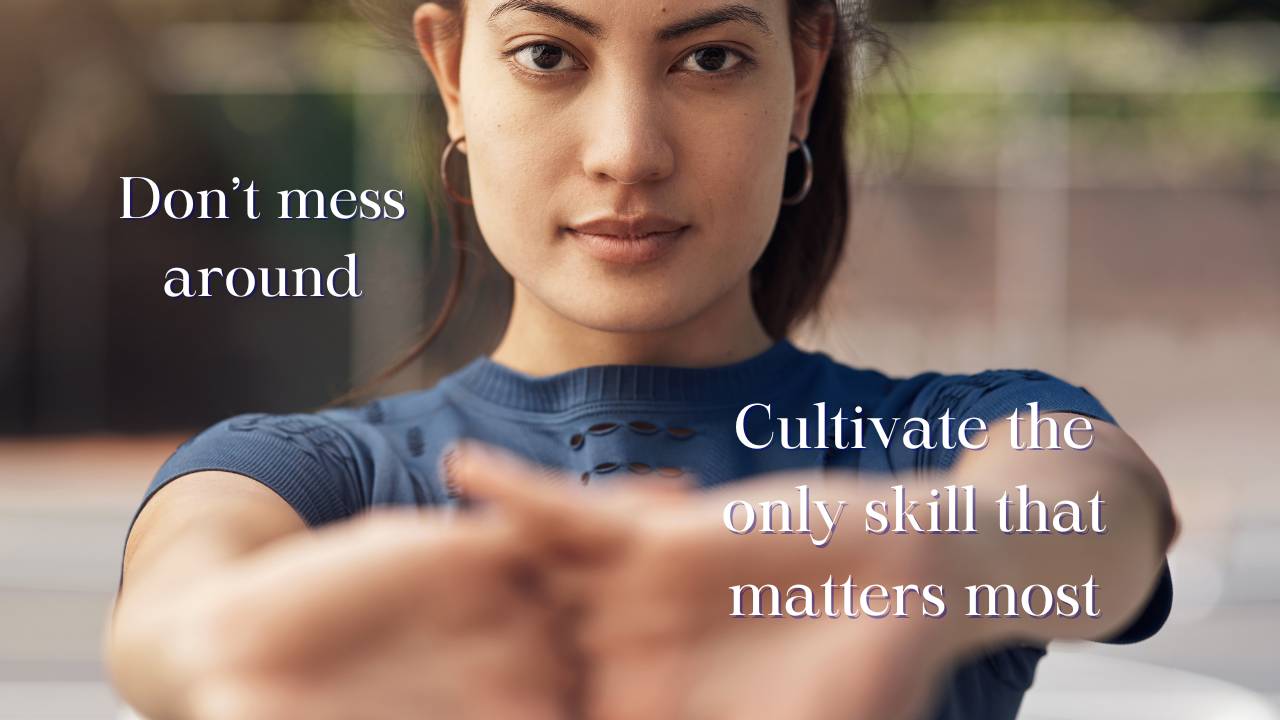
How to have deep talks with your Tweens and Teens
Nov 13, 2024
I feel so grateful that my tween/teen boys talk to me and their mom about tough stuff.
I appreciate who my kids are, apart from how they are parented, but I thought that aside from personality traits that are unique to my children, I may share some ideas that can help others also have more “deep” conversations with their kids.
First things first, start all this early, before they are tweens, if possible. If you are past that mark, it's never too late to connect more deeply. Get curious and see if the tips below can make a positive difference in the quality and tone of your relating.
Second things first, don’t try to have deep conversations with your kids.
These types of talks need to happen organically. So often we want a quick fix and convenient solution to fit tidily into our over-busy lifestyles. But if your kids’ health, happiness, and success are the priorities I know they are, there is no getting around the requirement of organizing your life in such a way that there are lots of casual connections and conversations that are light-hearted, pressure-free, and non-directive.
For example, I set an intention every day (far from complaining and feeling burdened by all the rides our kids’ full lives demand) to be very present and enjoy when we are in the intimacy-connection hot box - the car.
We listen to good music, we laugh as much as possible, and we sing loudly. We do not allow screens* or artificial distractions of any kind. I, as the parent/leader, wait and follow my kids' leads as much as possible.
(*We drove 40-plus hours each way, to and from Mexico, pictured above, with ZERO screen access in the car. You can do it. The capacity to lean into being bored is essential for creativity, and confidence in one’s inner resources).
When all 3 kids are in the car, things naturally don’t get too personal because the older boys want more privacy when they talk about tough stuff… but our collective car rides can get very philosophical from time to time and I quite enjoy that. With the kids on multiple sports teams at any given time, rides to and from school, and rides here and there, there are tons of opportunities to be in close proximity and to truly connect.
The “connection” here I am talking about is not agenda-driven per se, it is about intentional, active interest - it is about quality of Presence.

The Survival Mode being "on" too much, too often, for too long is the root of all suffering and disease.
Survival Mode is the "default" we are all born with, but we can upgrade to "Thriving Mode" if we know how.
Take the Surviving to Thriving Online CourseWhen there is a rare chance to drive (do dishes, etc) with only one of the kids, 1-1, something “deeper” often opens up and the kids come forward of their own volition with challenges, questions, hopes, dreams, strong opinions, and so forth. This is gold that can’t be mined for, it must be allowed.
It starts with entering into those rides (or any other time you regularly spend together) with an Open Heart of Appreciation for the quality time as the overall “frame” for this ongoing responsibility we have as parents to shuttle our kids to and fro. Kids coming forward on their own to talk about embarrassing, difficult, scary things is a result of trust capital that is invested in over time.
Next is: get those kids doing chores!!! (and not only because it is good for them to contribute and helpful for us to get their help)
The key here is to do “chores” together.
Every night possible we eat dinner together and then clean the kitchen together. This is an enculturated expectation in our home and so our kids don’t moan and groan (usually) because we have established it as “simply what we do.” There’s never been an alternative, so they don’t feel like they are missing out on “that.”
Same as with the car rides, there is no agenda to the conversations. We aren’t trying to get them to tell us about their day. Sometimes we rock out to music while cleaning, but knowing what I do about the importance of random rewards and perils of “dopamine stacking”, I sometimes deliberately turn off the music and lead by moving meditatively and quietly through the dishes. Again, I am not instructing this or demanding this. I am doing this. And allowing the quality of my Presence to set the tone.
I am just as happy to chit-chat about nothing much, as I am to go into “deeper” territory. Again, here, the real gold is the quality time together.
It is this secure base of attachment, doing the work of life together without a sense of burden, rush, obligation, or overwhelm that - cultivated over time - has, I believe, instilled in our kids a tremendous sense of confidence, trust, work ethic, responsibility, contribution, and participation in family life and beyond.
Sometimes we do talk specifically about family values and the many slogans that adorn our walls (at some point I have on my "blogs to write" list, a deep dive on our family slogans). We always talk about gratitude at dinner, and we usually do a family prayer of sorts that is non-religious and semi-consistent. But overall, it is the consistency of togetherness that pays off not only for them and their robust and resilient nervous systems but also for the enjoyment Tania and I have in seeing our kids thrive, and in having truly meaningful and satisfying relationships with our kids who are largely opting out of the grumpy, isolated teenager motif.

I do think, besides the overall environment of connectivity and togetherness that we are fostering, that there is something specific about the movement, embodiment, and accomplishment-feeling, of doing chores together, which semi-regularly results in the spontaneous volunteering of intimate information from both of our kids, at different times, with both Tania and I. I know I cherish these moments when they arise, as does Tania, and I am equally happy to know my kids connect with their Mom in their unique ways when I am not around.
Lastly, I also think it's impactful that we have an explicitly stated, regularly reminded, family policy that there is ZERO punishment for ANY “bad” behavior if our kids tell us about it before we learn about it another way. I am not a total hippy parent, and do think strong “consequences” are important for parents to provide boundaries for their children. But, the gains of our kids feeling confident that they can truly tell us anything without fear of “getting in trouble” far outweighs any value they might gain by getting grounded, “punished”, or whatever.
Let us know in the comments below or on social media, what works for you and your family. How do you connect with your kids in casual or deeper ways?
It takes a village and we can all learn from each other.
Together we thrive.












